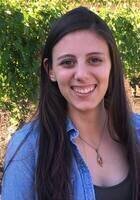Create an account to track your scores
and create your own practice tests:
All PSAT Critical Reading Resources
For many students, the PSAT is a chance to test-drive the SAT. It is an opportunity to exercise those skills that are necessary for a high score - to determine where you can improve before you take the real SAT, as well as where you currently excel.
Some high school students approach the PSAT like a practice test. After all, it is a fantastic tool for focusing your studies and prep appropriately. However, unlike other practice exams that may not demand your full attention, the PSAT is also your ticket to a National Merit Scholarship. A National Merit Scholarship can provide you with money for college, as well as resume prestige. Do not discount the PSAT just because it might seem like a practice test.
The PSAT Critical Reading exam, for instance, is one section where thorough prep is especially valuable. The ability to read with intention is a skill that you will need to master now, for the PSAT, and later, for the ACT and SAT, your college and high school courses, and your future career. The energy you invest in developing your critical reading skills will serve you well in many regards.
This portion of the PSAT, and the PSAT as a whole, will change in the fall of 2015 to better reflect the Revised SAT. The Critical Reading section will consist of 47 questions, for which you will be given 60 minutes. You will be asked to read four stand-alone passages, as well as a pair of selections. Each passage will be several hundred words in length. You might see selections that discuss topics in history, science, or social science, or you might receive a literature excerpt. No matter the content, your task is to extract meaningful information and draw conclusions. This might mean identifying a vocabulary word based on its context, or evaluating which statements support the main idea. Can you draw conclusions from and make inferences based on written material? Are you a critical reader?
The problem, of course, is that it is not easy to become a great critical reader. You simply cannot turn into an accomplished literary critic overnight. Instead, you have to develop your critical reading skills slowly, over time. This is more akin to becoming a champion basketball player than it is to memorizing facts.
The best way to prepare for the PSAT Critical Reading exam is to challenge yourself now. You will want to spend time seeking out and reading material that you might not encounter otherwise. If you work with tutors, you can take what you read and discuss the material together. You will be forced to synthesize the content and deliver it in your own words, thus encouraging your understanding. With these techniques, your PSAT Critical Reading score can reach its maximum potential, and you will be well on your way to ultimate success on the SAT and ACT!
Certified Tutor
Certified Tutor




